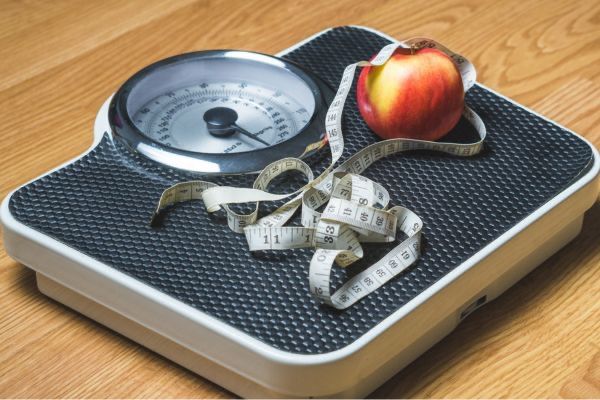
Weight Loss Plateaus – Strategies to Break Through
-
Understanding Weight Loss Plateaus
It is frequently suggested that in the case of a weight loss plateau, food and/or exercise need to be increased. However, this is often not the case. the research underscores the significance of engaging in physical exercise as a key component in the treatment of diabetes. “The cornerstone to helping any person lose weight… whether it is physical activity alone or physical activity and diet.
-
Adjusting Your Diet and Exercise Routine
As you lose weight, your metabolism can drop because your body requires less calories or “energy” to fuel a smaller you. There are other reasons of course why you might be experiencing a weight loss plateau. In this section of the guide, we will feature some of the most popular methods for overcoming your weight loss plateau. The words “diet” and “exercise” have been mentioned so many times together in the same sentence that they are now often thought of as the perfect couple – like Batman and Robin! Well, with some research supporting the idea that weight loss can be 20% exercise and 80% diet, you can choose to disagree. However, one known fact in the health and fitness world is that weight loss and muscle gain is heavily dependent on diet. So, you’ve got into a good habit. You’ve been exercising regularly and are pleased with the results of your weight loss.
However, for whatever reason, the weight loss appears to have stalled, and you feel like you could be doing more. Well, you probably can! Try eating more healthy fats, such as fish like mackerel and avocados. This can help your body to burn fat more efficiently. Also, for every hour of exercise, drink 500ml of water to help avoid dehydration and fatigue. Every now and again, increasing your calorie intake for a short amount of time can help you to regain your weight loss. However, be very careful when applying this method, getting your calories and exercise balance wrong can have the opposite effect on your weight loss. (1) (2) (3)
-
Incorporating Strength Training
Strength training is especially important for saving lean muscle while trying to lose weight. This will help you achieve proper muscle tone and achieve physique performing empty fat to be lost. Training with heavy weights with low reps and training with lightweights followed by high reps are two options that can be tried. To make it challenging, it will be better if pain can last 5 repetitions in every preset. One option for training with heavyweights is to use the around eighty to eighty-five percentages of maximum ability doing the exercise for the repetitions. Doing the repetitions with focus can help to stress target muscle but if the last repetition cannot be completed, used weight should be reduced. It is very beneficial as strength training can raise the resting metabolism. Resting metabolism discovered by the scientists stays in euphoria after strength training.
So, it can be a successful strategy to overcome weight loss plateau. However, it is also very important as adults began to lose from five to of their muscle mass every ten years after the age of thirty. This will eventually slow down the metabolism, increase fats in the body and increase the risk of injuries. So, the muscles and the body shape will be remained only with strength training. Also, the bone density is being enhanced which will help to minimize osteoporosis later. By the mean of shaping up the body look better and exciting metabolism, controlling weight by having good balance in calorie burning and guarding the health, strength training can be the best solution for successful weight loss. (4) (5) (6)
Weight Loss Plateau: Overcoming the Stagnation
-
Managing Stress and Sleep
Another important aspect of recovery and maintaining a healthy body is managing your stress levels and getting enough sleep. This is included as part of my workout recovery series because when your body is under stress and when you do not get enough sleep, it significantly hinders your body’s ability to recover after a workout. In addition, the body releases stress hormones when you are under stress and those hormones can be damaging to the body. For example, one of the primary hormones that is released during times of stress is the hormone cortisol. Cortisol is a catabolic hormone, meaning it breaks down molecules. While of course we need cortisol to live, too much cortisol can cause muscle wasting, suppress your immune system, increase blood pressure, and lead to weight gain.
Many studies have also found that people who sleep less tend to weigh more and have more difficulty losing weight. There are two hormones in your body that are affected by sleep, leptin, and ghrelin. I like to think of these as the yin and the yang, or even better, as the Jerry and Tom, of hormones: they are jazzed that they have each other to bounce off and they’re going to introduce chaos to the peace and quiet of the household. When you don’t get enough sleep, the body decreases the amount of leptin that is produced and increases the amount of ghrelin. Leptin is the hormone that tells you that you’re full and when you are sleep deprived and have low levels of leptin, your body doesn’t realize that you’re full, so you continue to eat.
Ghrelin on the other hand, is the hormone that makes you feel hungry. When I was first looking into and learning about the negative habits that come with not getting enough sleep, I was shocked to see how much research is out there on this topic. It’s a very serious concern and I have seen the effects of sleep first-hand, as a college student and an athlete. So how do you improve your sleep? The Sleep Foundation provides a list of evidence-based tactics that are the first steps to help you manage and improve sleep.
First, you can create a bedtime routine to help relax and calm your body, you can also make sure to get natural light exposure as best as possible throughout the day, especially in the morning, and you can exercise to help regulate your sleep pattern. I’d also recommend limiting caffeine and nicotine and staying away from large meals before bed. Sleep has a significant impact on weight loss and weight management and incorporating these tips will undoubtably help you get a better night’s rest and help your body in the healing process. (7) (8) (9)
-
Seeking Professional Guidance
Another option to overcome a weight loss plateau is to seek the help of a professional, such as a registered dietitian, psychologist, or physical trainer. For example, a registered dietitian will work with you to make sure you are following a well-balanced diet that includes all required nutrients. They will supply you with a weight loss plan and will suggest meals that you can eat to overcome your plateau.
They might tell you to maintain a better food diary where you can document everything you eat the period of day as well that you consume certain foods. Also, you might benefit from speaking with a psychologist if the plateau is brought on by tension or emotional eating. If you think that anxiety could be the reason for your plateau, then a psychologist can help you locate a way to relax and maintain tension levels low.
When plateau is brought on by emotional eating, a psychologist will help you find the root cause of your eating and offer you the knowledge necessary to cease the damaging cycle. Lastly, a physical trainer can help you overcome your plateau by altering your workout program. The trainer can add new exercises, increase the intensity of your work outs, or just get you to try various work outs that target the same muscle groups. Also, if you’ve been only doing cardio you may wish to introduce strength training into your exercise as this helps to build lean muscle that will in turn aid your weight loss.
read more:
How do you fix a weight loss plateau?
References:
Kim, J. Y. (2021). Optimal diet strategies for weight loss and weight loss maintenance. Journal of obesity & metabolic syndrome.
Cabeca, A. (2022). MenuPause: Five Unique Eating Plans to Break Through Your Weight Loss Plateau and Improve Mood, Sleep, and Hot Flashes.
Escalante, G., Campbell, B. I., & Norton, L. (2020). Effectiveness of diet refeeds and diet breaks as a precontest strategy. Strength & Conditioning Journal, 42(5), 102-107.
Bland, K. A., Kouw, I. W., van Loon, L. J., Zopf, E. M., & Fairman, C. M. (2022). Exercise-based interventions to counteract skeletal muscle mass loss in people with cancer: Can we overcome the odds?. Sports Medicine, 52(5), 1009-1027
Pegington, M., French, D. P., & Harvie, M. N. (2020). Why young women gain weight: A narrative review of influencing factors and possible solutions. Obesity Reviews.
Lee, J. H. & Cho, J. (2022). Sleep and obesity. Sleep medicine clinics.
Zachary, Z., Brianna, F., Brianna, L., Garrett, P., Jade, W., Alyssa, D., & Mikayla, K. (2020). Self-quarantine and weight gain related risk factors during the COVID-19 pandemic. Obesity research & clinical practice, 14(3), 210-216.
Chaput, J. P., McHill, A. W., Cox, R. C., Broussard, J. L., Dutil, C., da Costa, B. G., … & Wright Jr, K. P. (2023). The role of insufficient sleep and circadian misalignment in obesity. Nature Reviews Endocrinology, 19(2), 82-97.
Ning, X., Lv, J., Guo, Y., Bian, Z., Tan, Y., Pei, P., … & China Kadoorie Biobank (CKB) Collaborative Group. (2020). Association of sleep duration with weight gain and general and central obesity risk in Chinese adults: a prospective study. Obesity, 28(2), 468-474



Pingback: Weight Loss Plateau: Overcoming the Stagnation